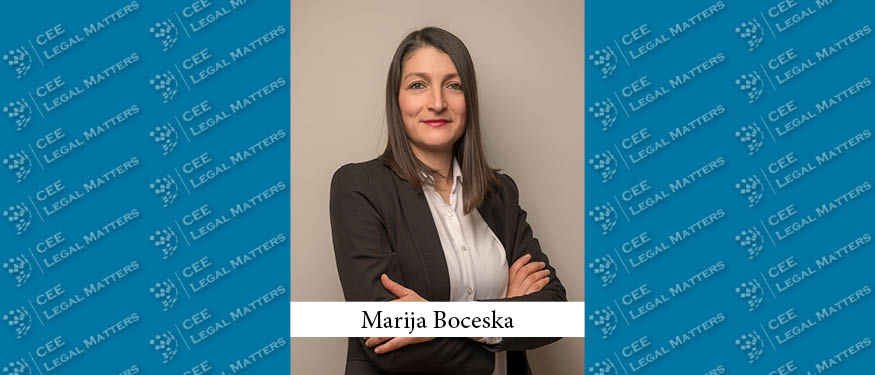Expropriation is the process of taking or limiting ownership and other property rights over real estate for the purpose of realizing a public interest as defined by law. In the Republic of North Macedonia, this process is regulated by a specific Law on Expropriation.
The Constitution guarantees that no one may be deprived of their property or property rights except in cases of public interest established by law and with appropriate compensation, which must not be lower than the market value.
The state (or municipality) may compulsorily acquire or take over private real estate if necessary for the implementation of a project or goal of social importance, which has previously been declared to be of public interest by law or a legally based decision.
It is important to emphasize that expropriation is an exception to the general protection of private property. It is carried out strictly within the legal framework under clearly defined circumstances and with respect for the rights of property owners. Otherwise, any unjustified deprivation of property would constitute a violation of the constitutionally guaranteed right to property.
Conditions for Expropriation – Public Interest
Public interest is the essential prerequisite for any expropriation. The law explicitly states that expropriation is permitted only when a public interest exists, such as major infrastructure and development projects of broader significance.
The Law on Expropriation provides an extensive list of objects and activities considered to be of public interest, including:
- National-level transport infrastructure
- Energy, utility, and telecommunications systems
- Facilities of public service and social importance
- Urban planning projects and disaster protection
- Exploitation of strategic resources
Expropriation Procedure – Initiation and Course of Action
The right to initiate expropriation proceedings is typically held by the state or local self-government. In other words, the Republic of North Macedonia or a local self-government unit (municipality or the City of Skopje) may submit a proposal for expropriation to the competent authority.
According to the law, this authority is the government agency responsible for property-legal affairs. The next step in the procedure involves scheduling an oral hearing (public session), at which both parties—the property owner (and potentially other rights holders) and the expropriation proposer—are summoned.
The property owner has the right to be informed of the proposal, ask questions, make statements, and present objections or evidence concerning the expropriation. The purpose of the hearing is for the authority to determine whether the conditions are met: the existence of public interest, whether the proposal refers to the correct property and owner, and whether appropriate compensation has been offered. The intent is to include the owner in the process so they can actively protect their interests.
Compensation for Expropriated Property
The owner of the expropriated property is entitled to fair compensation, which cannot be lower than the market value of the property. This principle is established both in the Constitution and in the law.
Compensation is typically paid in monetary form. However, there is also the possibility of compensation through the provision of another suitable property—i.e., the owner may be offered a different parcel or building in exchange.
It is crucial that compensation be “fair”, meaning not only equal to the assessed value but also timely and efficient—i.e., it must be paid before or at the moment of the property handover.
Legal Protection for Property Owners
Property owners are afforded strong legal protection and the right to appeal (file a lawsuit) against decisions affecting them. Specifically, they may file a lawsuit with the Administrative Court within 15 days of receiving the expropriation decision.
Upon filing the lawsuit, an administrative dispute is initiated, in which the court reviews the legality of the decision—whether there was a legally established public interest, whether the procedure was correctly carried out, and whether the compensation is in accordance with legal standards.
The law also stipulates short deadlines for decision-making—30 days from the receipt of case files.
If either party is dissatisfied with the Administrative Court’s decision, they have the right to appeal to the Higher Administrative Court. This court is also bound by a 30-day deadline from the date of receiving the case. The two-tier judicial review ensures oversight and balance: allowing an independent judiciary to assess whether the expropriation is justified and fair.
In practice, the expropriation procedure often faces various challenges and problems, including:
- Delays in proceedings and compensation payments
- Disputes over the amount of compensation
- Lack of transparency and public awareness
- Limited access to legal aid and counselling
Conclusion
Expropriation represents a complex legal process that requires careful balancing of two fundamental interests—the community’s need to realize important public projects and the individual’s need to protect their private property.
North Macedonia’s legal framework sets clear rules for maintaining this balance: public interest is a necessary precondition, but it must always be accompanied by a fair procedure and adequate compensation for the property owner.
The balance between public interest and private property is a measure of the maturity of a legal system and democratic values. Expropriation is a necessary tool for development, but it must be implemented with the utmost respect for the owner. Only then can public interest be seen not as a justification for injustice, but as a shared goal from which all citizens, directly or indirectly, stand to benefit.
By Marija Boceska., Senior Associate, JPM North Macedonia
